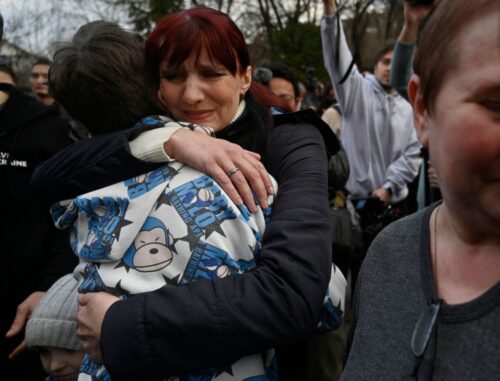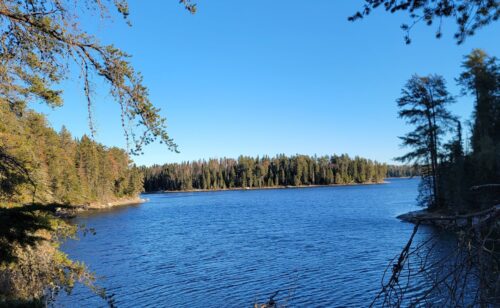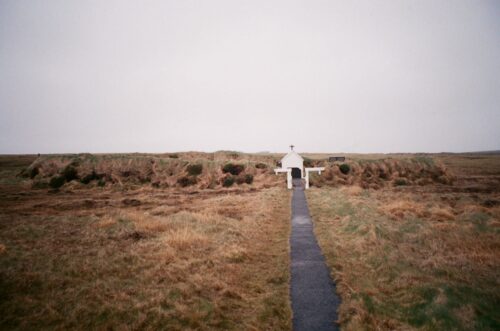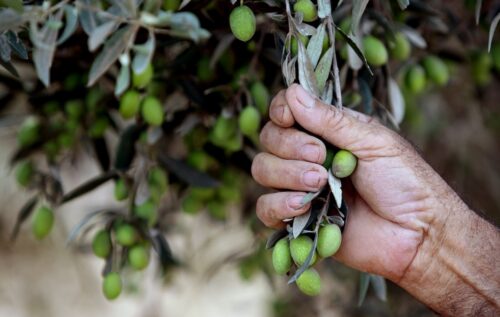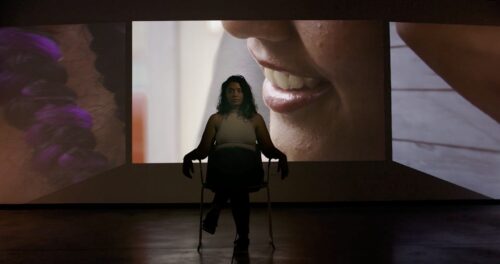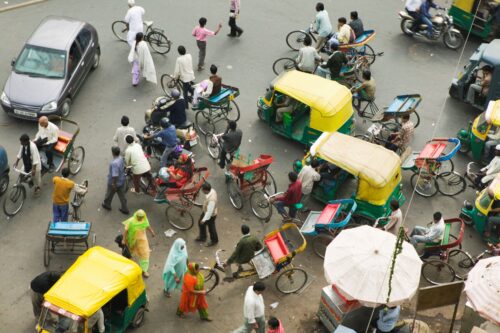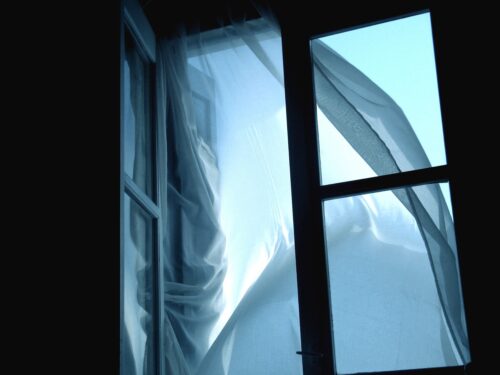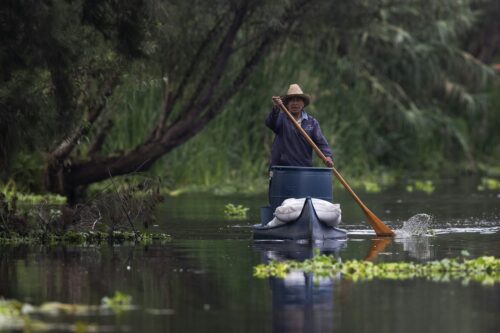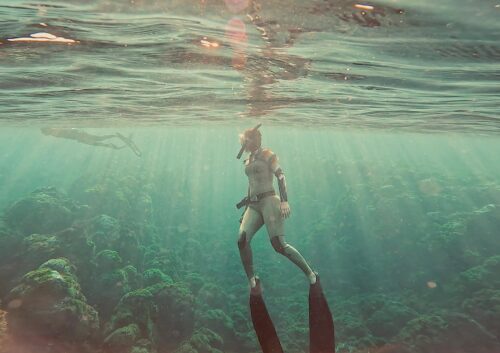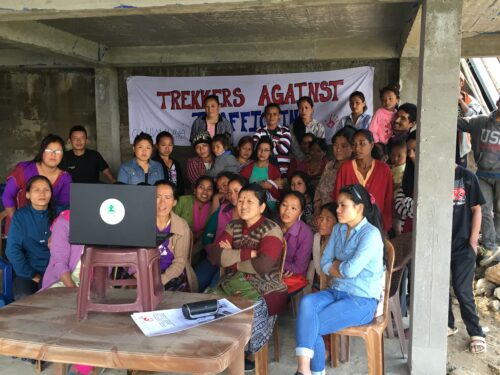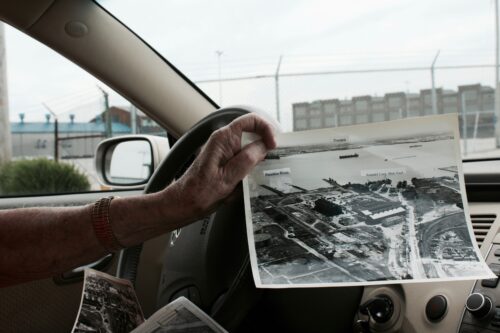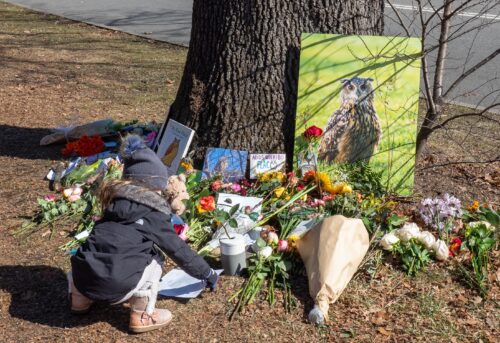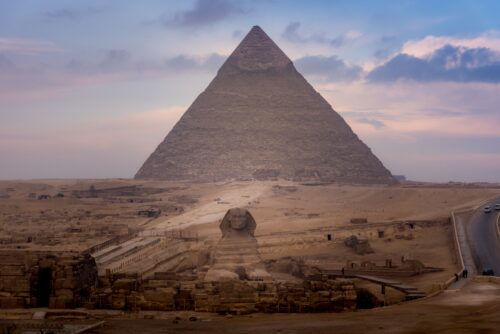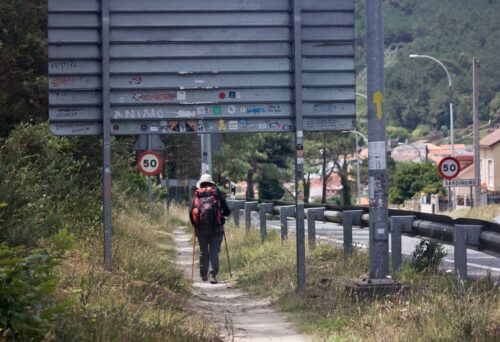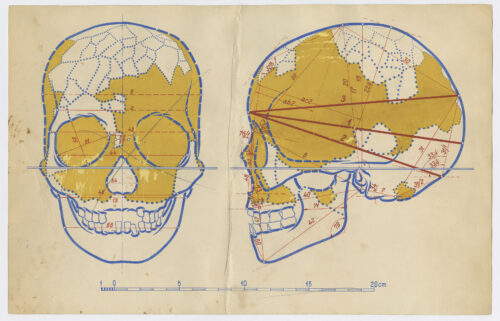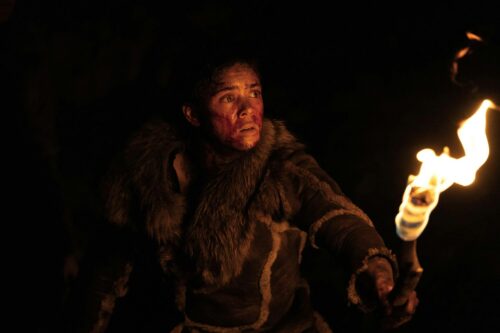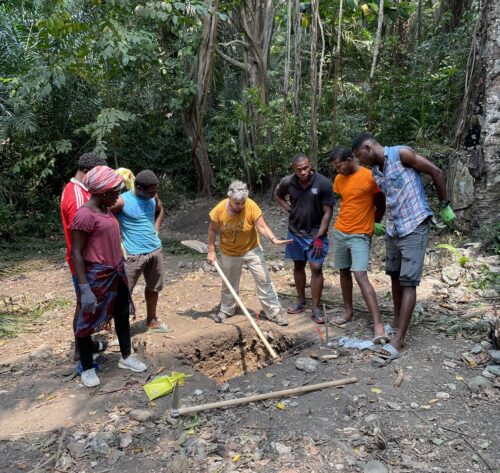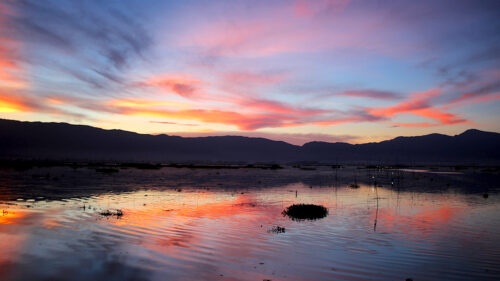One
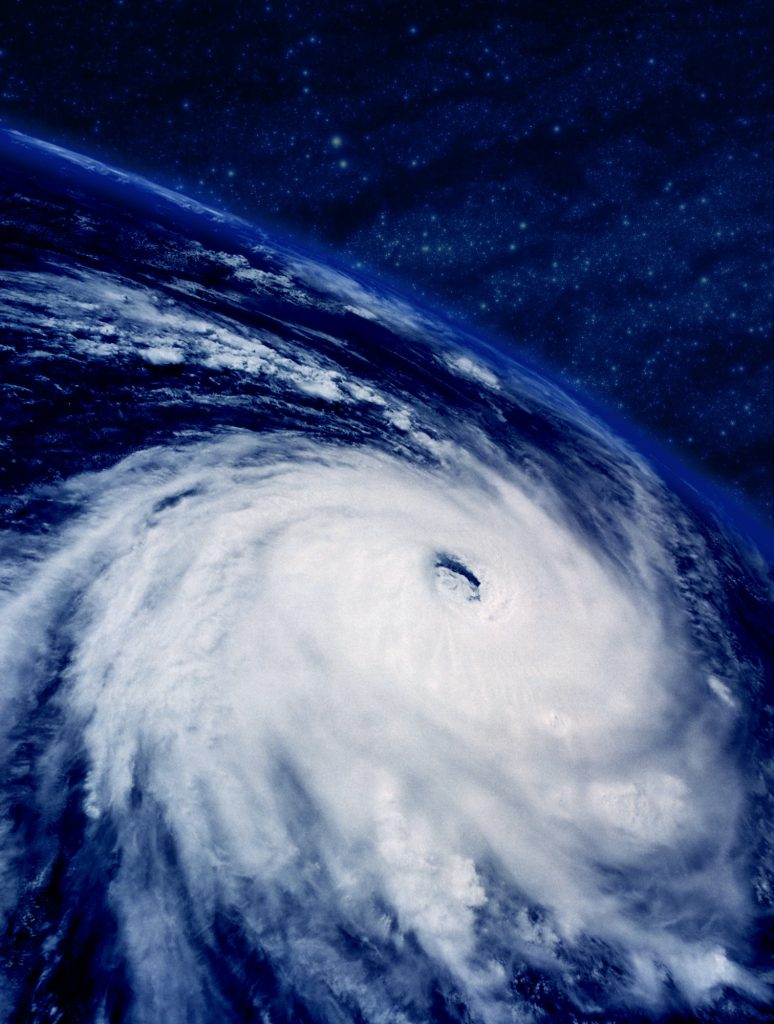
“The sea cannot know itself as yet unborn until the eye of the storm passes above its tumultuous skin, blinking.”
I remember when
lions came for the weak
and made them strong.
I remember my longing as a shattered bridge,
with shards like teeth striking into the air,
rusted-out spikes, empty holes holding sky.
What humans had made,
I could not break apart—
the skin of it covered all,
the seeping insensitivity
thorough as an eye surveilling.
Race does not provide [1] [1] Italicized passages are from the American Association of Physical Anthropologist’s Statement on Race & Racism.
yet many have searched, and do, for this giving,
this aperture,
this gilded frame
an accurate representation of—
for what could be verified
in ethereal halls
could be married to human biological variation.
Linguistic references from
Carl Linnaeus to Johann Friedrich Blumenbach,
from Cecil Rhodes to Steve Bannon.
Twenty-nine races or five—
maybe 129—
chosen distinctions
from “Others,”
what one mind calls out,
marks, keen on comparison, the idol of want
in the perfectionist’s eye.
Human variation:
so many homes for “us”: here
“them”: over there.
So many apartheids: Her tin cup, plate,
silverware boxed separately,
stored under the sink—not to mix with the others.
Shame quarantined to back stairs;
violence silenced.
So few options:
Take your place at the incorrigible table of
Known::Unknown. Perfect::Defective.
Highly Evolved::Primitive.
Imagine the early herders
negotiating land with foragers,
the landscape sparse and worthy, never empty.
The Fertile Crescent
a surprise of human ingenuity—
domestication coming on the backs of
sheep, cattle, goats
understood in place,
seedling after seedling modeled, rooted,
their variants elongating over time. Sung to.
A place for growing:
humans, we who do not turn our backs on stability
yet are ever on the move.
The threaded generations
shifted between pastoralism, semi-agriculture,
hunting and gathering—
East African landscapes in turn
in bloom,
dormant:
the eye of a continent blinking.
Even as I peer today,
I remember how the staff felt in my hand,
mornings of dew and age,
bird calls of arrows and light,
the darting gnats.
Winds slow, cresting thigh-eased grassy hills.
Humans are not divided biologically
and the visions of those who knew
seem to have been lost
in the uprootings,
massacres,
extractions,
thefts—
what solidified as cul-de-sacs of the mind:
into distinct continental types or racial genetic clusters.
I lean in.
Has it a distinction unknown in the Levant,
in Mexico,
in the inner deserts of Australia—
on the semi-arid mesas inhabited by Ancestral Puebloans?
I want to draw into it a definition,
a boundary as distinct as an ocean shore. For what’s available,
we lean,
we persist in leaning in, knowing: fight or flight or freeze.
The hierarchy of assumed natures of “Man”—
the Western concept of race must be understood as
a classification system
that emerged from, and in support of,
European colonialism, oppression, and discrimination.
Race thus does not have its roots in biological reality
but in policies of discrimination.
As sand wisps across an expanse
riddled by ridges,
terrain atlatls or bows or fishhooks or trails story,
where creeks burble from underwater passageways,
where storm flashes across rounded huts—or those
leaning and half-buried—
skyscrapers, adobe apartments,
prefabs
dotting each continent,
out of its eye
We can be born.
Beyond the treacherous anchors of time,
the near-genocide crowns claimed,
the demonic passages and violent echoes of slavery,
the howling emptiness of Germany’s wake,
the DRC’s heaving,
racism’s many wounds: horrors beyond imagination
but not, no: as real as scars thick beyond recognition—
unveil,
reckon with.
The eye blinking:
the necessity and blessing
of our diversity.
All humans living today belong to a single species,
Homo sapiens:
I await your voices—
Sing us whole.
